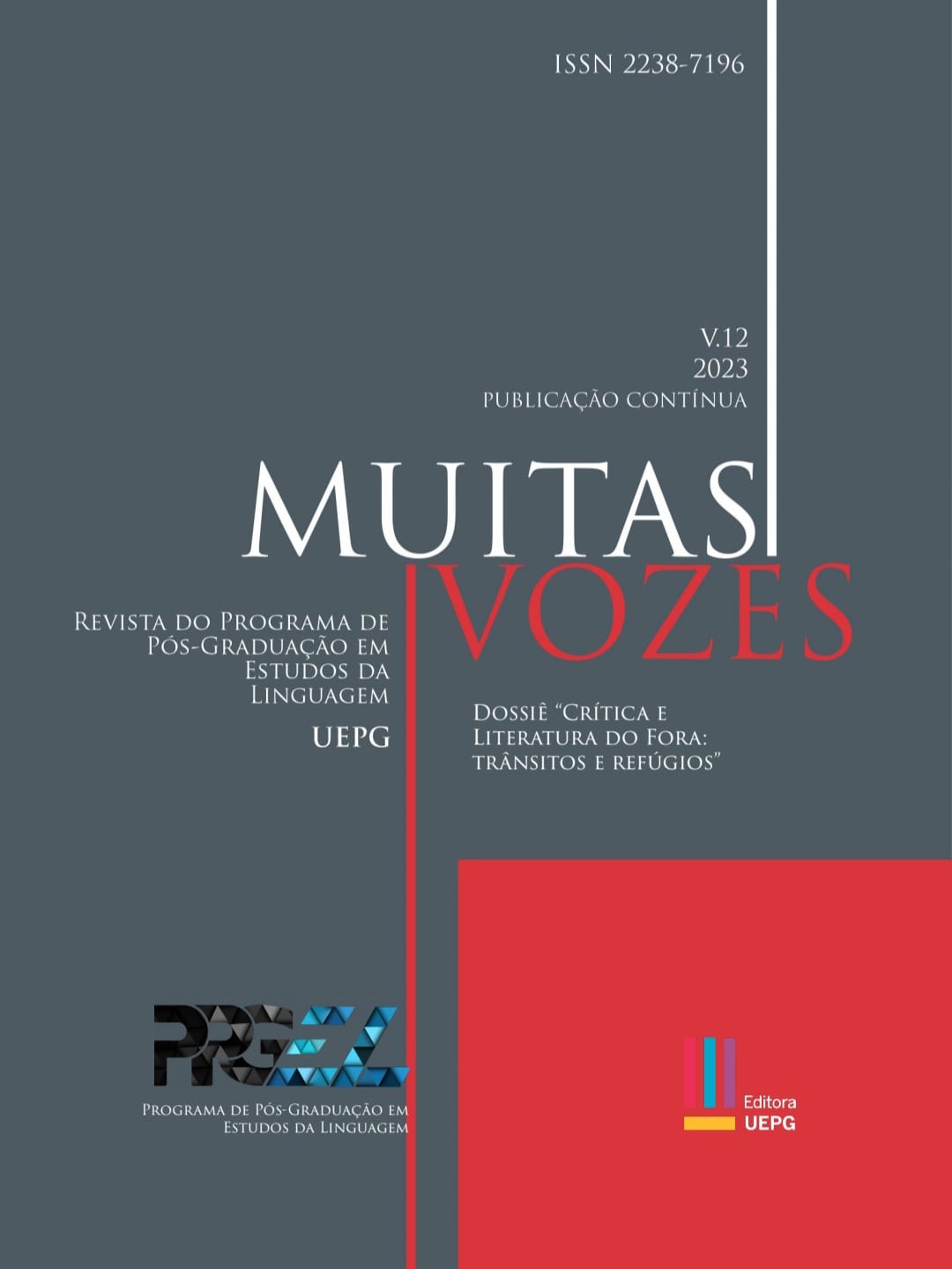SILVIANO-SAMUEL: OS CONTORNOS HÍBRIDOS ENTRE ESCRITOR, AUTOR E NARRADOR EM O FALSO MENTIROSO
OS CONTORNOS HÍBRIDOS ENTRE ESCRITOR, AUTOR E NARRADOR EM O FALSO MENTIROSO
Abstract
The tensions between fiction and non-fiction have become more visible in 21st century’s brazilian narratives, allowing for discussion about the factual nature of the events being narrated. Drawing on this debate, we propose a critical-interpretive analysis of Silviano Santiago’s work O falso mentiroso (2004) and its composition as a novel that simulates an autobiography. Specifically, we identify and discuss the contours among the elasticity of contemporary novelistc language, primarily driven by a memorialistic return. We highlight certain references that underpin our discussion: a) the structural definitions of autofiction by Martin (2014), Nogueira (2018) and Santiago (2018); b) contemporary literary theories by Hutcheon (1992), Ginzburg (2012), and Fuks (2016; 2017); c) ideas about the category of memory proposed by Seligmann-Silva (2002) and Sarlo (2007). In the conclusions, we emphasize the condition of a hybrid character in the work, on the verge of a new fiction constructed through the pact of ambiguity in the narration of a subject who, fragmented by trauma, invents their origin through novelict creation.
Downloads
Downloads
Published
How to Cite
Issue
Section
License
Copyright (c) 2024 Muitas Vozes

This work is licensed under a Creative Commons Attribution 4.0 International License.

Este obra está licenciado com uma Licença Creative Commons Atribuição 4.0 Internacional.
Transferência de direitos autorais: Caso o artigo submetido seja aprovado para publicação, JÁ FICA ACORDADO QUE o autor AUTORIZA a UEPG a reproduzi-lo e publicá-lo na REVISTA MUITAS VOZES, entendendo-se os termos "reprodução" e "publicação" conforme definição respectivamente dos incisos VI e I do artigo 5° da Lei 9610/98. O ARTIGO poderá ser acessado tanto pela rede mundial de computadores (WWW - Internet), como pela versão impressa, sendo permitidas, A TÍTULO GRATUITO, a consulta e a reprodução de exemplar do ARTIGO para uso próprio de quem a consulta. ESSA autorização de publicação não tem limitação de tempo, FICANDO A UEPG responsável pela manutenção da identificação DO AUTOR do ARTIGO.



